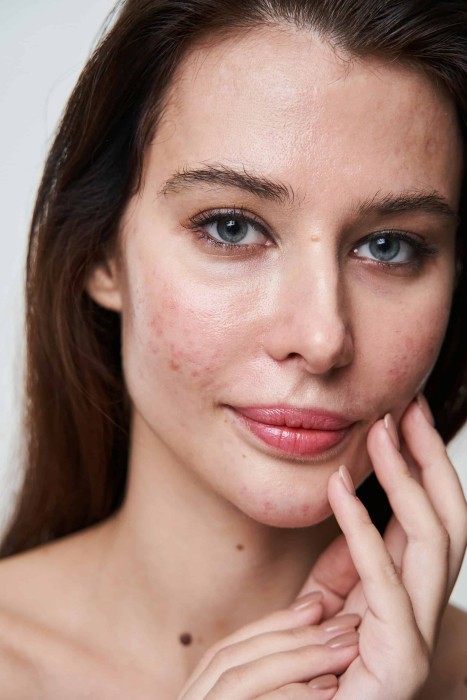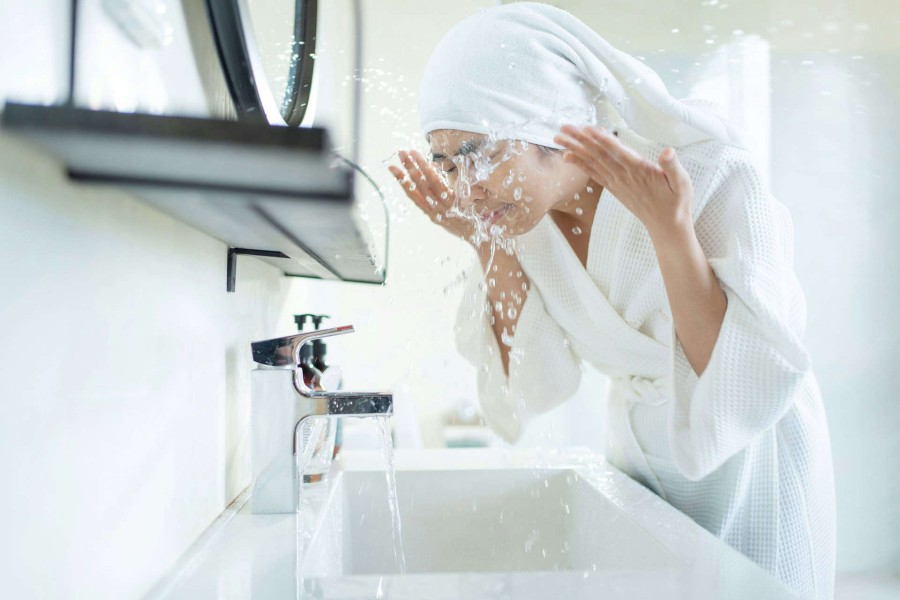
Has your facial skin ever suddenly developed redness, irritation, blackheads, and a lot of acne? If so, you could be experiencing a breakout. What causes this? Scroll down to learn more!

Photo source by Unsplash+ (Getty Images)
Androgens, or sex hormones like testosterone, stimulate the oil glands to produce sebum (an oily substance on the skin) excessively. This excess oil can clog pores and promote the growth of acne-causing bacteria known as C. acnes.
The growth of this bacteria leads to skin inflammation, which can eventually result in whiteheads, cystic acne, or blind acne.
However, everyone's skin reacts differently. Genetic factors also influence how the body responds to acne-causing hormones.
According to Dr. Hadley King, a board-certified dermatologist in New York, the frequency of facial breakouts depends largely on the sensitivity of an individual’s oil glands.
Therefore, if your oil glands are more sensitive to acne-causing hormones, you are likely to experience facial breakouts more frequently.

Photo source by Unsplash+ (Valleria Miller)
Similarly, lack of sleep contributes to higher cortisol levels, which can also trigger acne. When someone is stressed, their body, compounded by lack of sleep, can release more cortisol, binding to the oil glands and promoting acne.

Photo by Fernanda Martinez on Unsplash
High-glycemic foods are often highly processed and can cause rapid spikes in blood sugar levels. When blood sugar spikes, the body produces more insulin and insulin-like growth factor 1 (IGF-1). Increased insulin heightens sebum production, while IGF-1 elevates androgen levels (natural steroid hormones), also boosting sebum production and secretion. This excess oil can then flood the pores and lead to acne.

Photo source by Unsplash+ (Zyanya Citlalli)

Photo source by Unsplash+ (Getty Images)
Additionally, not washing your pillowcase at least once a week can contribute to facial breakouts. Regularly changing your pillowcases and sheets is just as important. By adopting a healthy diet and maintaining facial cleanliness through diligent washing and routine pillowcase changes, you can foster better skin health!













